My family and I have had a compost bin ever since we have had a garden. Our current compost bin is 6 years old. We all know that traditional composting is based on the decomposing process, an aerobic process which takes time. My kids know, as we do, that we can’t put meat, dairy or cooked grains in compost, as these will attract vermin, or citrus, due to it not decomposing well and worms don’t like them. One of my boys had the chore of taking out the kitchen scraps, at least once a week or in summer up to 3 times, and putting it in the big bin in the garden. There, he would be assaulted by flying insects, slimy slugs and the putrid scent of decomposition, which he totally detested. Now, that has all changed.
We began a Bokashi compost this past February. I had seen it many years ago in a catalog for natural products but didn’t look further into it. Some vegan friends of ours mentioned that they were using it and then last year a good friend of mine from Malaysia mentioned that she had one. When I told her of our compost not having meat, grains or citrus, we began to discuss the benefits of Bokashi and how one can basically put every organic matter in it to ferment, creating super healthy compost without the vermin.
Bokashi is a Japanese word meaning “alteration” or “fading away.” The Bokashi composting method, developed by Dr. Teruo Higa, is a fermentation process not a decomposition. It works with bacteria like Lactobacilli, yeast and purple non-sulfur bacteria, which come in the form of Bokashi bran. This bran is added to the kitchen waste every time you put it in the airtight Bokashi bin. It’s an anaerobic process, which ferments and doesn’t decompose the organic matter. Hence, it doesn’t smell like decay but more like a pickling (slightly vinegar/acid) odor, which vermin do not like. We purchased our kit which comes with 2 airtight buckets and a whole bag of Bokashi bran. My internet research has shown me that you can make it all yourself, if you want to. Once the bucket is full, you set it aside for 2 weeks and then bury the organic matter in the earth for another 2 weeks before you plant on top of the enriched soil. I put mine in my compost bucket. After 2 weeks, there’s almost no more matter that resembles food, just sweet-smelling compost full of worms. What’s also great is that there is a Bokashi tea, which needs to be emptied every 2-3 days and this can be used to help fertilize plants (diluted down with water) or poured down the drain to help clean your pipes. Now how brilliant is that? Food waste transformed into earth and the liquid used to clean and fertilize, all happening in my kitchen and backyard. That’s what I call transformation!
*Note: Author has not received any financial renummeration for recommendations
Photos Bokashi & Compost by Elaine

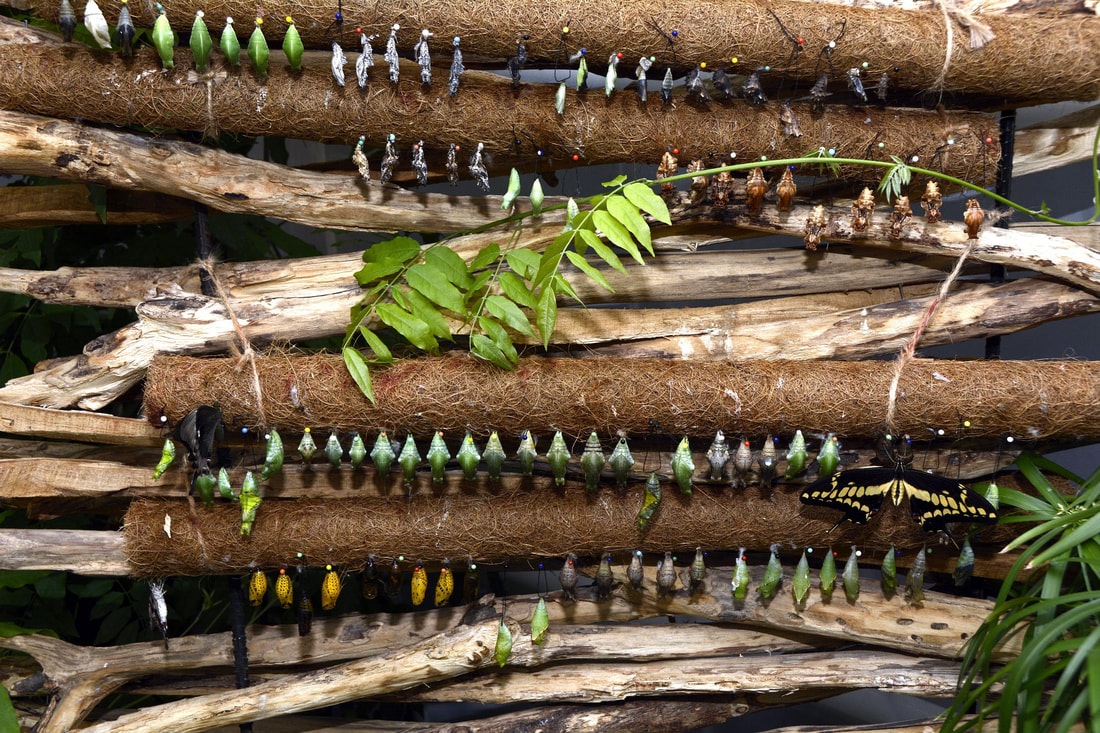
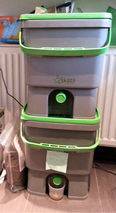
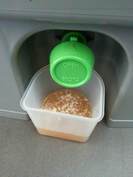
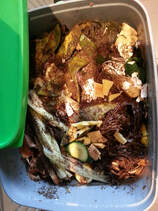
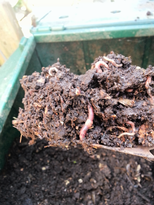
 RSS Feed
RSS Feed